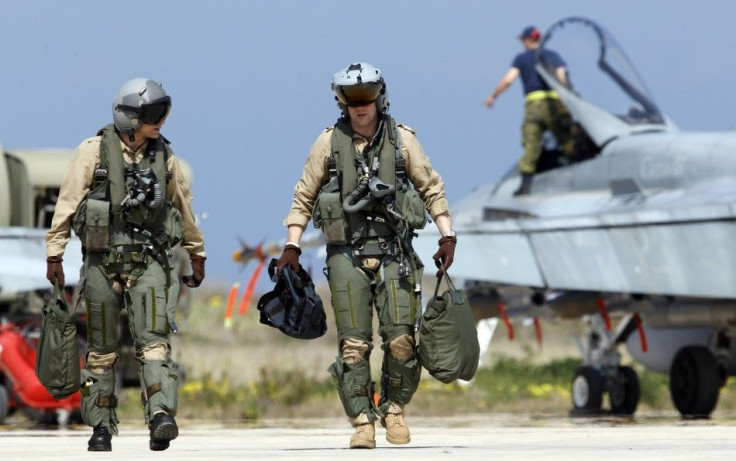NATO Takes Charge On Libya, as U.S. Steps Back

NATO, with all its 28 member nations in agreement, agreed on Thursday that it will take over command and control of operations to enforce a no fly zone over Libya and all necessary measures to protect civilians, with the United States handing over the heavy lifting to its partners.
We are taking action as part of the broad international effort to protect civilians against the attacks by the Gaddafi regime. We will cooperate with our partners in the region and welcome their contributions, said Anders Fogh Rasmussen, the NATO Secretary General.
U.S. Secretary of State said on Thursday that events had moved quickly and that countries beyond NATO, including Arab partners would be involved.
We have agreed along with NATO allies to transition command and control over Libya to NATO, U.S. Secretary of State Hillary Clinton said on Thursday.
NATO would assume control in the days ahead, she said.
She added that as long as Libyan leader Muammar Gaddafi threatens, we must remain vigilant.
Qatar had, until now, been the only arab nation providing its jets for enforcement of the no-fly zone. She said the United Arab Emirates would also begin participating.
The way for NATO to take over was paved in part by Turkey, a member of the group.
All of Turkey's concerns, demands on the issue have been met, said Ahmet Davutoglu, Turkey's foreign minister, according to Turkish state media. He said the transfer in command will occur in a day or two.
The coalition of nations formed in talks in Paris recently will abandon the mission and hand it over entirely to a single command system under NATO, he said.
Turkey had previously expressed reservations about NATO taking over and wanted assurances that the operation would be limited to the protection of civilians, the enforcement of an arms embargo and a no-fly zone, and the offer of humanitarian aid.
He said a compromised was reached in a conference call with counterparts with the U.S., France and Britain.
Earlier in the week, the Arab League, a voluntary group of 22 North African and Middle Eastern countries, reiterated its support for a United Nations resolution authorizing the use of military force to protect civilians.
It had expressed concern that the bombings had killed civilians. The Libyan government had reported deaths in statements which the U.S. had dismissed as lies.
The Arab League's support for a no-fly zone over Libya was an important factor in the decision by members of the UN Security Council voting for action in Libya.
© Copyright IBTimes 2024. All rights reserved.





















